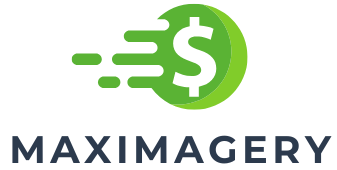Table of Contents
ToggleMastering personal finance isn’t just about crunching numbers or sacrificing lattes; it’s about taking control of your financial destiny with a dash of humor. Imagine being the captain of your ship, navigating through stormy seas of bills and expenses, while effortlessly avoiding the iceberg of debt. It’s not just a dream—it’s a reality waiting for those ready to dive in.
Understanding Personal Finance Mastery
Mastering personal finance involves more than just basic budgeting. It encompasses a proactive approach to managing long-term financial goals and developing habits that foster financial stability.
Definition of Personal Finance Mastery
Personal finance mastery refers to the comprehensive understanding and application of financial principles. It includes budgeting, saving, investing, and planning for retirement. Individuals proficient in personal finance possess the ability to manage their resources effectively while making informed decisions. Mastery involves ongoing education and practical application, allowing individuals to navigate financial challenges confidently.
Importance of Financial Literacy
Financial literacy plays a crucial role in personal finance mastery. Understanding key financial concepts empowers individuals to make sound decisions about their money. Knowledge of topics like interest rates, investment options, and market trends informs choices that impact financial well-being. Without financial literacy, many struggle to manage debt and savings, often resulting in poor financial health. Prioritizing financial education ensures individuals build a secure future through informed decision-making and strategic financial planning.
Key Components of Personal Finance Mastery

Mastering personal finance requires understanding essential components like budgeting and saving. These elements form the foundation of a secure financial future.
Budgeting Techniques
Budgeting remains a pivotal tool in personal finance mastery. Creating a detailed budget allows individuals to track income and expenses effectively. Methods such as the 50/30/20 rule guide allocation of funds, directing 50% to needs, 30% to wants, and 20% to savings. Implementing zero-based budgeting ensures every dollar is assigned a purpose, promoting responsibility in spending habits. Regularly reviewing and adjusting budgets enhances financial awareness, allowing for better decisions during varying financial circumstances.
Saving Strategies
Saving strategies play a crucial role in achieving financial goals. Setting specific savings targets encourages proactive decision-making. Establishing an emergency fund with three to six months of expenses creates a safety net for unexpected costs. Automating savings transfers eases the process, making it less likely to spend funds earmarked for savings. Additionally, high-yield savings accounts provide better returns on saved money, maximizing interest earned. Investing in retirement accounts, such as a 401(k) or IRA, enhances long-term savings while benefiting from potential tax advantages.
Investment Fundamentals
Investing plays a crucial role in personal finance mastery. Understanding various investment options helps individuals grow their wealth and achieve their financial goals.
Types of Investments
Stocks represent ownership in a company. Bonds serve as loans to governments or corporations, providing fixed interest returns. Mutual funds pool money from multiple investors, enabling diversified investments in stocks and bonds. Exchange-traded funds (ETFs) offer similar benefits as mutual funds but trade like stocks. Real estate investing involves purchasing property to generate rental income or appreciate in value. Commodities, including gold and oil, are physical assets that can diversify an investment portfolio. Each type has unique characteristics and aligns differently with individual risk tolerance and financial objectives.
Risk Management in Investing
Effective risk management is vital in maintaining a balanced investment strategy. Diversifying investments across different asset classes reduces exposure to market volatility. Setting clear investment objectives helps determine an appropriate risk level. Regularly reviewing the investment portfolio allows for timely adjustments based on market conditions. Utilizing stop-loss orders can limit potential losses by automatically selling assets when they reach a predetermined price. Staying informed about market trends and economic indicators supports better decision-making. These practices can help investors navigate uncertainties while working towards long-term financial success.
Debt Management
Debt management plays a crucial role in achieving personal finance mastery. Understanding the difference between types of debt helps individuals make informed decisions about their financial health.
Understanding Good vs. Bad Debt
Good debt contributes to wealth-building and financial stability. Examples include student loans and mortgages, which typically offer low interest rates and can lead to higher returns. Bad debt, on the other hand, involves high-interest liabilities, such as credit card debt. Accumulating debt from lavish spending or unnecessary purchases impacts financial freedom negatively. Recognizing these distinctions allows individuals to prioritize debt repayment effectively and align their financial strategy with long-term goals.
Strategies to Pay Off Debt
Implementing effective debt repayment strategies is vital for financial health. The snowball method emphasizes paying off the smallest debts first, creating momentum and motivation. Alternatively, the avalanche method focuses on tackling high-interest debts first, minimizing interest paid over time. Consolidation options can simplify payments by combining multiple debts into a single loan. Regularly reviewing one’s budget facilitates adjusting spending habits and directing those savings toward debt repayment. Setting up automatic payments ensures consistency in managing obligations and helps avoid late fees.
Building Wealth
Building wealth involves strategic actions that lead to financial growth. It includes various methods to establish a strong financial foundation.
Creating Multiple Income Streams
Creating multiple income streams offers financial stability. Individuals can explore freelance work, side businesses, or passive income sources, such as rental properties or dividend stocks. Diversifying income options reduces reliance on a single job. Research indicates that having at least three income sources increases financial resilience. Seeking online opportunities, like e-commerce or consulting, further enhances earning potential. Regularly assessing and adjusting these streams contributes to long-term financial success.
The Power of Compound Interest
The power of compound interest significantly boosts wealth over time. Investments grow not only on the principal amount but also on accumulated interest. Starting early with contributions leads to exponential growth. For example, investing $1,000 at an annual interest rate of 5% can yield $1,628 in ten years. Long-term strategies often yield better results due to this effect. Utilizing tax-advantaged accounts such as IRAs maximizes the benefits of compound growth. Making consistent contributions enhances overall returns, reinforcing the necessity of financial discipline.
Tools and Resources for Personal Finance Mastery
Mastering personal finance requires the right tools and resources. These resources enhance financial literacy and simplify complex concepts.
Financial Apps and Software
Utilizing financial apps helps individuals track expenses and manage budgets effortlessly. Popular choices include Mint for comprehensive budgeting, YNAB focused on proactive money management, and Personal Capital for investment tracking. Each app offers unique features suited to varying financial goals. Software such as Quicken provides extensive options for managing personal finance from budgeting to investment scenarios. Selecting the best tool often depends on personal preferences and specific financial situations. These applications streamline financial awareness and improve money management techniques.
Recommended Books and Courses
Reading books on personal finance builds a solid foundation of knowledge. “The Total Money Makeover” by Dave Ramsey offers practical steps for debt-free living. “Your Money or Your Life” by Vicki Robin emphasizes transforming relationships with money. Online courses from platforms like Coursera and Udemy expand understanding of investment strategies and budgeting skills. Financial literacy programs available through organizations provide valuable insights into wealth-building techniques. Engaging with these resources enhances knowledge and supports informed financial decisions.
Mastering personal finance is a transformative journey that empowers individuals to take control of their financial futures. By adopting proactive strategies and cultivating essential habits, anyone can navigate the complexities of budgeting, saving, and investing. The right tools and resources make this process more accessible and effective.
As one embraces the principles of financial literacy, they not only enhance their decision-making skills but also pave the way for long-term stability and wealth. With dedication and a clear vision, achieving personal finance mastery is within reach, leading to a secure and prosperous future.





